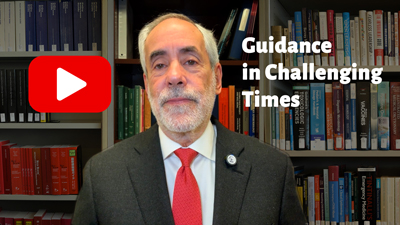Advocacy

State of Idaho
2025 Legislative Session
- The Health Insurance Portability and Accountability Act (HIPAA) guarantees certain rights for patients, including confidentiality. HIPAA means your private medical decisions, including those about your reproductive health, remain private. Idaho has signed on to one of the four legal cases challenging the right to medical privacy currently winding through the courts.
- Mifepristone. Peer-reviewed studies have repeatedly demonstrated the safety of Mifepristone, a drug frequently used to treat miscarriages, post-partum hemorrhage, Cushing’s disease, and certain ulcers. But some state and federal politicians continue pushing to limit access to the drug. (You may recall HB 137, a bill introduced last legislative session that would treat Mifepristone and Misoprostol the same way we treat highly addictive medication like oxycontin.)
- WWAMI Call to Action: Late this afternoon, the full house debated and passed HB 368, a replacement bill for HB 176. The new bill reduces the number of seats in Idaho’s WWAMI medical education program and sets up an untenable timeline for launching or expanding Idaho’s relationship with other medical schools. If we want to address the doctor shortage, we need to add to Idaho’s physician pipeline, not reduce it. Please write to your senators THIS WEEKEND and ask them to vote no on HB 368.
- Is Silence Golden? We haven’t seen or heard much about a number of concerning bills in the last few weeks including HB 137 (a bill that would reclassify Mifepristone and Misoprostol as schedule IV drugs while listing prescribers and user on Idaho’s prescription drug monitoring program) and HB 77 (a bill that would allow graduates of medical school become doctors without residency training). With just a few weeks left in the session, we’ll keep watching and let you know if they surface.
- Idaho Legislature 2025 Leadership and Committee Assignments (website)
Federal Legislative Resources
- AAP Statement on House Passage of H.R. 1 (website)
How to contact your Elected Representatives
- Senator Mike Crapo
- Senator James E. Risch
- Congressman Mike Simpson
- Congressman Russ Fulcher
Community Partners
- Idaho Children Are Primary (website)
- Idaho Voices For Children (website)
- Idaho Kids Covered (website)
- Idaho Medical Association (IMA) (website)
- Idaho Hospital Association (IHA) (website)
- American Heart Association (website)
General Resources
- Pediatricians: This Is My Why (video)
This year, the AAP is celebrating the expertise, compassion, and everyday heroism of pediatricians, pediatric medical specialists, and pediatric surgical specialists through the new Pediatricians: This Is My Why campaign. This yearlong celebration is built around authentic, personal stories shared by members across the country. To kick things off, watch this powerful video from AAP President Andrew Racine, MD, PhD, FAAP, who describes his "why" and how that inspires his work. The AAP invites all members to join the campaign by sharing their own "my why" story. Members can submit their story in any format: video; blog or written reflection; photo or slideshow; or something creatively and uniquely you.  (website)
(website)- Press Release: Showing up in this challenging time (website)
- Advocacy works best when right message is delivered by right voice to right audience (website)
Events
AAP Advocacy Conference
- Joe Wilbanks, MD FAAP: I highly recommend the AAP Advocacy Conference. It was my first time going and my first foray into federal advocacy. I left feeling charged and inspired despite some difficult meetings with our state’s legislative offices. There were some great speakers with great pearls of wisdom that have stuck with me:
- Lawmakers are generalists that rely on others for pros/cons of policy. We are experts in child health and need to be their voice. People trust their physician more than any other when it comes to a health issue: 85% in a KFF poll (Jan 2025).
- Stories are the root of advocacy. I will begin collecting patient stories to help as I reach out to policymakers. They are more persuasive — and memorable — than statistics.
- Personalized calls/emails are much more effective than form letters that we are often asked to send. One former senator noted that his office only needed five personalized contacts from constituents before taking the response seriously.
- Gracie Strubel, DO: I found the conference to be helpful in so many ways. Being around like-minded people who have similar goals - keeping children safe and healthy, felt refreshing and validating especially in the setting of threats of Medicaid defunding. As a young pediatrician, it was motivating to see other seasoned pediatricians at the conference and hearing their advocacy wins as well as the stories of perseverance and resilience when things didn't turn out as they had hoped. Advocacy is a huge part of why I felt drawn to pediatrics in the first place, so I was grateful for the opportunity to attend this conference and further that passion for advocacy.





